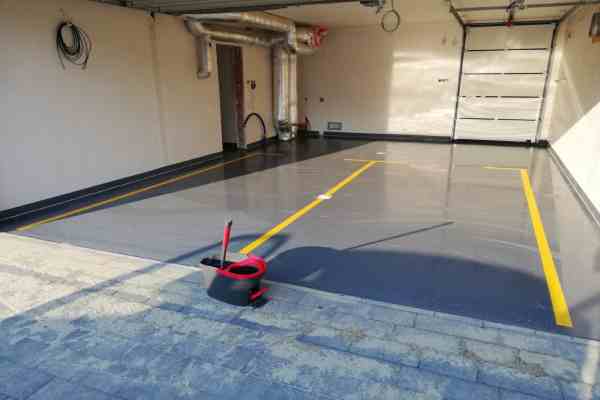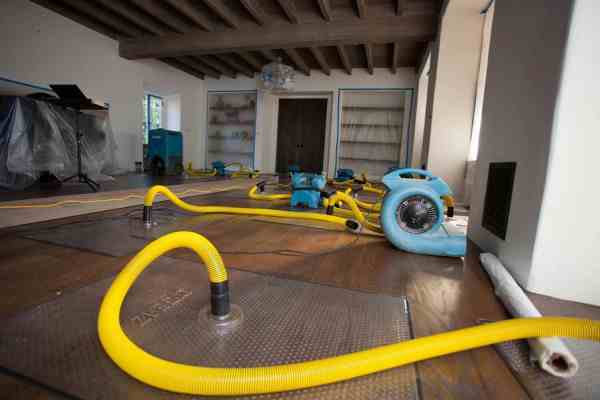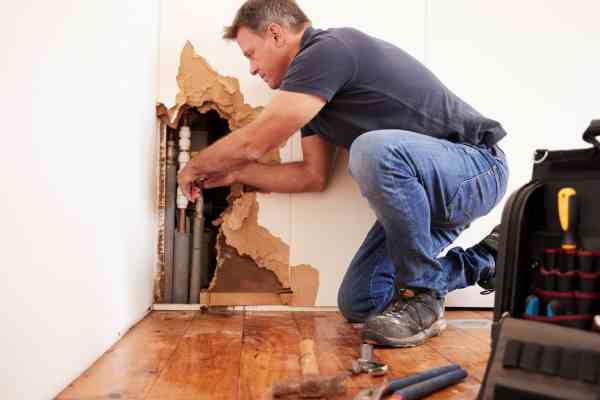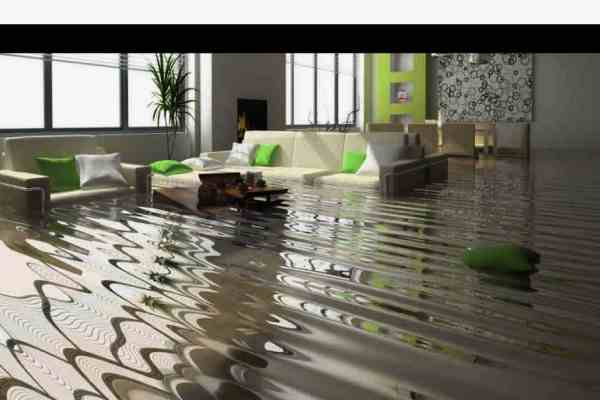Preventing water damage is the best solution for not experiencing damage from water. Indeed, there is one most common destructive problem that many homeowners often face: water damage. It can be caused by a lot of reasons, such as plumbing leaks or natural disasters such as floods or heavy rain. If you understand the potential for water damage and try to solve it as soon as you determine, you can reduce the chances of water damage. In this article, we will investigate all about it. Stay with us.
Understanding the Water Damage Threat
You may want to know what water damage is exactly. Water damage can happen in many different ways, and it’s very important to know where these risks come from. Some of the most common causes of it include:
- Plumbing Leaks: If the pipes of the building are old or they have not been serviced for a while, there will be the risk of water damage.
- Roof Leaks: in the case of heavy rains, a damaged roof can allow water to gain access to your home and cause lots of problems.
- Basement Flooding: Because of poor drainage systems or sump pump problems, basements are often a high risk place for water damage.
- Appliance Failures: There is a possibility for dishwashers, washing machines, and water heaters to have unexpected leaks.
While these situations are common, you can stop many of them or minimize the risk by taking preventive steps. Understanding where water can enter your home and trying to solve the problem is the first step to preventing water damage.
Water Damage Prevention Tips for Your Home
To have water damage protection, remember that prevention is always better than protection. We mention some practical steps that you can take to reduce the chances of water damage in your home.
1. Regularly Inspect Plumbing
The good news is that water leaks often start small. So it will be easier to stop and solve problems and prevent them from getting worse. One of the most effective ways to protect your home from water damage is to regularly inspect your plumbing. We suggest you look for signs of leaks around faucets, pipes, and water-using appliances. Check the walls and ceilings for water stains. These places show leaks very soon.
2. Maintain Your Roof and Gutters
Your roof and gutters are your home’s first line of defense against rain and snow. If your roof is damaged or your gutters are clogged, water can easily enter your home. One good action is to check your roof regularly for missing shingles, cracks, or signs of wear and tear. Do not forget to clean your gutters regularly and make sure they’re clear of leaves and debris. Water that overflows from clogged gutters can be collected around the foundations of the buildings.
3. Ensure Proper Drainage
For preventing water damage, do not forget to check outside of your house. The area surrounding your home plays an important role in water management. If you see poor drainage, it can lead to water pooling around your building and increase the risk of basement flooding. Check the soil around the house, because it can make the water flow better.
4. Install Water Detection Devices
Some devices are called water leak detectors. They can be placed near appliances such as dishwashers and water heaters or in basements to monitor for leaks. When there is extra water, the device alerts you. Then you can solve the problem without any special damage to your properties.
5. Seal Gaps and Cracks
If there are even some small gaps and cracks, water can enter your house through them. Check areas around windows, doors, and other places that can enter water into your house. It is suggested to caulk or seal these gaps to prevent water from seeping in. During storms or heavy rainfall, water can enter any small holes and cracks. So, sealing entry points is an easy and effective way to protect your home from water damage.
6. Install a Sump Pump in the Basement
To do the best water damage protection in your house, remember that basements are one of the most vulnerable areas in your home. If you are living in some areas with heavy rainfall or floods, buy a sump pump. It will help you remove extra water from your basement to prevent damage. Just check the pump to work properly before any heavy rain.
7. Know Where Your Main Water Shutoff Valve Is
One of the important steps in preventing water damage is to know where your main water shutoff valve is located. If you know the place of it in advance, it can save your home from water damage. In the case that a pipe bursts or a device like a washing machine does not work well, shutting off the water supply as quickly as possible can limit the extent of the damage.
Water Damage Protection Insurance
Even if you take every step for water damage protection, there is still the risk of water damage in your house from unknown sources. So, having the right insurance coverage is essential to protect your home and belongings. Review your home insurance policy to ensure it includes coverage for water damage. Some policies cover water damage caused by storms or floods, while others need additional coverage for these kinds of happenings.
How Restoration Companies Help in Water Damage
Because water damage is more serious than just getting everywhere wet, there is a need for help from restoration companies. They use professional equipment to remove water, dry affected areas, and prevent further damage such as mold.
Key Ways Restoration Companies Help:
- Water Extraction: Removing standing water from your house by using pumps and vacuums.
- Drying and Dehumidification: They use fans and dehumidifiers to prevent mold.
- Mold Prevention and Removal: Treating areas to stop mold growth.
- Damage Repair: They fix walls, floors, and ceilings.
- Insurance Assistance: They can help you with claims and paperwork.
Getting help from restoration companies will help you to restore and fix everything as soon as possible.
Conclusion
In this article, we investigated preventing water damage solutions. Water damage is a big problem for homeowners, but there are some ways to protect it. By taking simple steps like regularly inspecting plumbing, maintaining your roof and gutters, and installing water detection devices, you can reduce the risk of water damage in your home. By asking for help from restoration companies, you can have your properties back to the way they were before this happened very soon.
Revive Restoration: Your Trusted Partner in Water Damage Restoration
Revive Restoration Company is a trusted and experienced company in water damage restoration services. With years of experience, we specialize in helping homeowners and businesses recover from water damage quickly and efficiently. From water extraction to drying and repairing structural damage, our team is equipped with the latest technology to restore your property to its pre-damage condition. Contact us now for a consultation and to reserve our services.
For homeowners in West Vancouver, unexpected water damage can cause significant structural and financial challenges. Whether due to heavy rainfall, aging plumbing systems, or sudden appliance failures, addressing water damage promptly is crucial. Water Damage Restoration in West Vancouver provides expert solutions to minimize damage, prevent mold growth, and restore properties efficiently. Professional restoration teams utilize advanced drying technology and specialized techniques to ensure your home is fully restored and protected from future water-related issues





